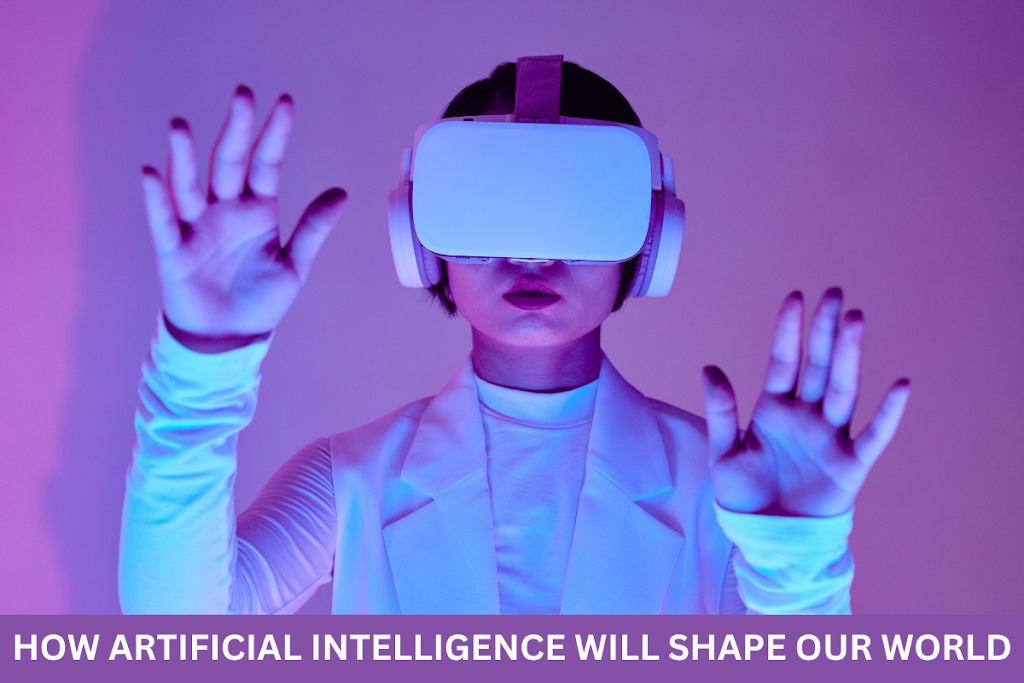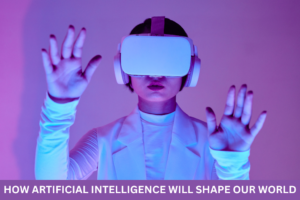How Artificial Intelligence Will Shape Our World
Artificial Intelligence (AI) is no longer just a futuristic concept; it is actively transforming industries, economies, and everyday life. From automation to decision-making, AI is reshaping the way we work, communicate, and interact with technology. As AI continues to evolve, its impact on our world will be profound, influencing everything from healthcare to transportation, education, and beyond. In this article, we will explore the key ways AI is shaping the future and what this means for society.
AI in Healthcare
One of the most promising applications of AI is in the healthcare sector. AI-powered systems can diagnose diseases with greater accuracy, analyze medical images, and even suggest personalized treatment plans. Machine learning algorithms assist doctors in detecting conditions like cancer, heart disease, and neurological disorders at an early stage, increasing the chances of successful treatment. AI-driven robots are also performing complex surgeries, reducing human error and improving patient outcomes. Additionally, AI chatbots and virtual health assistants are providing instant medical advice, making healthcare more accessible.
AI and Automation in Industries
AI is revolutionizing industries by automating repetitive tasks, improving efficiency, and reducing operational costs. In manufacturing, AI-driven robots handle tasks that were previously done by humans, increasing productivity and precision. Businesses are using AI-powered analytics to predict market trends, optimize supply chains, and improve customer experiences. AI chatbots and virtual assistants are streamlining customer service, allowing companies to offer 24/7 support without human intervention. While automation raises concerns about job displacement, it also creates new opportunities for upskilling and innovation.
AI in Transportation
The transportation industry is undergoing a massive transformation with the integration of AI. Self-driving cars, powered by AI algorithms, are being developed to reduce road accidents and improve traffic flow. AI is also playing a crucial role in air traffic management, helping airlines optimize flight routes, reduce fuel consumption, and enhance passenger safety. In logistics, AI-powered drones and autonomous delivery robots are making package delivery faster and more efficient. These advancements are expected to revolutionize mobility, making transportation safer and more sustainable.
AI and Education
AI is redefining education by personalizing learning experiences for students. Intelligent tutoring systems analyze students’ learning patterns and adapt lessons to suit their needs. AI-powered chatbots provide instant assistance to students, answering questions and providing study materials. Virtual reality (VR) and augmented reality (AR) combined with AI are creating immersive learning environments that enhance student engagement. With AI-driven tools, educators can track student progress more effectively and provide targeted support where needed, improving the overall quality of education.
AI in Cybersecurity
As cyber threats become more sophisticated, AI is emerging as a powerful tool in cybersecurity. AI-powered systems can detect and prevent cyberattacks by analyzing patterns and identifying potential vulnerabilities in real time. Machine learning algorithms can predict security breaches before they occur, helping organizations strengthen their defense mechanisms. AI-driven authentication methods, such as facial recognition and behavioral biometrics, are enhancing security in banking, online transactions, and digital identity verification.
AI and Ethical Considerations
While AI offers numerous benefits, it also raises ethical concerns that need to be addressed. The use of AI in surveillance, data privacy, and decision-making processes can lead to potential biases and misuse. Ensuring transparency and fairness in AI algorithms is crucial to preventing discrimination and maintaining trust in AI systems. Governments and organizations are working on developing ethical AI frameworks to regulate its use and minimize risks. Public awareness and discussions about the ethical implications of AI will play a vital role in shaping policies and guidelines for responsible AI deployment.
The Future of AI
As AI technology continues to advance, its potential to shape the world will only increase. AI-driven innovations in quantum computing, natural language processing, and robotics will further enhance human capabilities and drive progress in various fields. However, to harness AI’s full potential, collaboration between governments, businesses, and researchers is essential. Proper regulations, ethical considerations, and continuous learning will be key to ensuring AI benefits humanity in a positive and responsible manner.
Conclusion
AI is undeniably transforming the world in ways we could have never imagined. From revolutionizing healthcare and transportation to reshaping education and cybersecurity, AI is at the forefront of technological advancement. While challenges such as job displacement and ethical concerns exist, proactive measures can help society adapt and thrive in an AI-driven future. By embracing AI responsibly and leveraging its potential for good, we can shape a world where technology enhances human life, drives innovation, and creates new opportunities for progress.






